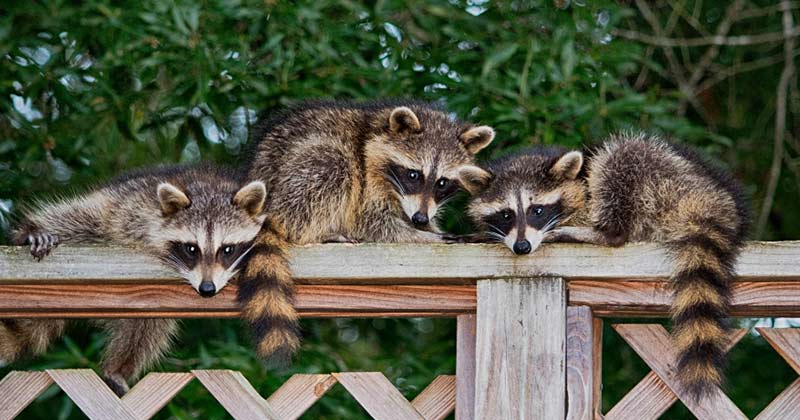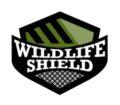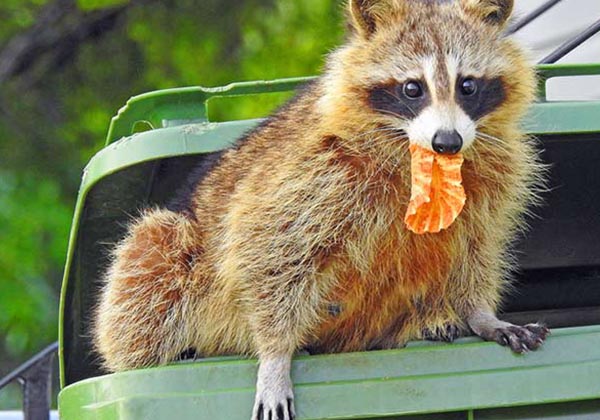Raccoons are dangerous for many reasons. They can be aggressive to animals like pet dogs and cats especially and small children tend to not realize the danger. Raccoons absolutely will bite and scratch and that is not all. Raccoons on your property regularly could result in your child or pet coming across a rabid raccoon. Rabies is a transferable virus that any mammal can be infected with through a scratch or a bite from an infected animal. This disease is present in many species other than Birds, reptiles, amphibians and fish. Raccoons are the vector species for it in that the most likely way to get it is from an infected raccoon. How they get it is likely due to their diet of eating dead animals that may still have the virus in their blood but that is currently conjecture. The only reality is that the most common form of transfer is through a bite or scratch from a raccoon. From there you can get it from an infected pet and so can children.

The raccoon could also have a raccoon roundworm. For young raccoons, the chances are as high as 90% and for adults, it’s still 70% of all raccoons in North America. This is not good. It means there is no way to tell without an expensive scientific test to find if the feces has a roundworm or not. The only way to get rid of it is to shovel it into a bag and then dispose of it, the clothing you wore and the tools you used as they are all infected now. You should also wear nitrile or latex gloves under gardening gloves and wash your hands and feet after at the hose before going inside. Make sure to double up on protection. A face mask is good but a face mask and a visor are better. If it gets in your eyes it can still affect you as you ate it orally so be careful and wear eye protection. The process is very dangerous, if the feces are dry you must spray them heavily with disinfectant before cleaning them as the parasite can become airborne and inhalable through the nose as well as the mouth. If you are worried call a professional. They will use powerful hospital-grade chemical sterilizers and boiling steam over 100 degrees celsius. This process along with spraying the area after feces is removed and that the tech is wearing a full face covering oxygen tank respirator, will be safe but you may not be.

